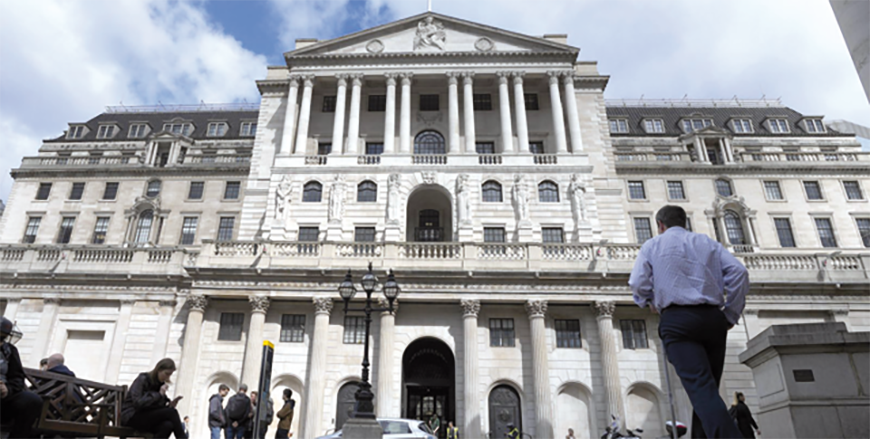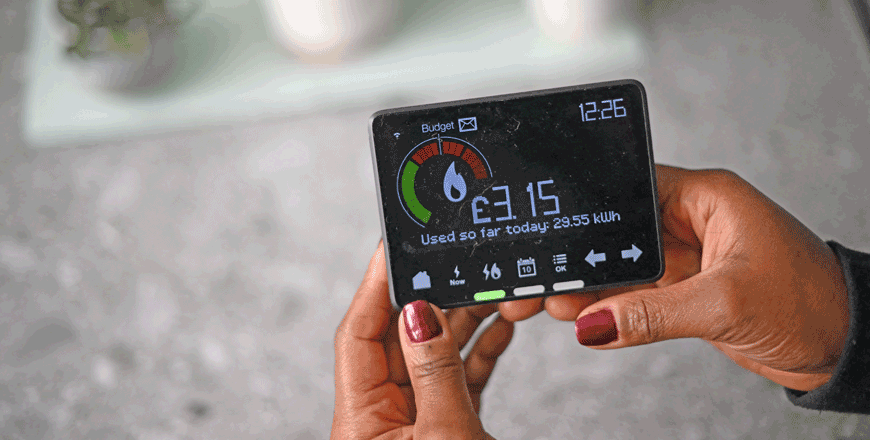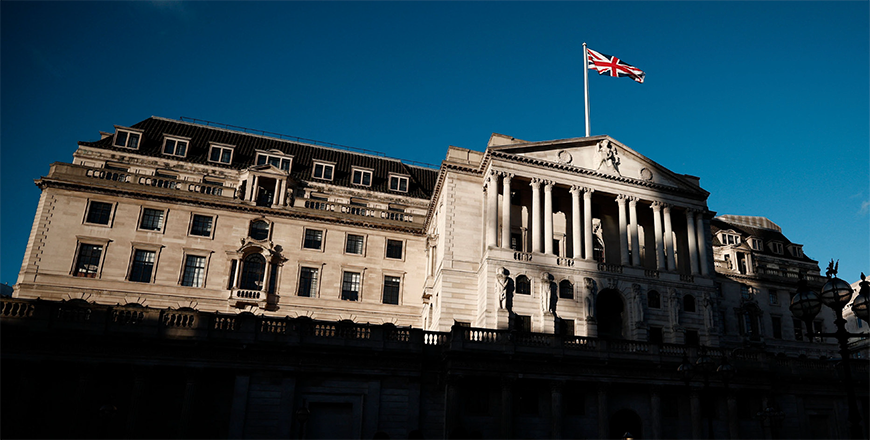You are here
Sticky UK inflation stokes Bank of England rate-cut debate
By AFP - Feb 15,2024 - Last updated at Feb 15,2024

People walk past the Bank of England in London, UK, May 5, 2022 (AFP file photo)
LONDON — British annual inflation steadied last month, official data showed on Wednesday, but prices still rose at double the Bank of England's (BoE) target rate, adding to uncertainty over the timing of an interest-rate cut.
The Consumer Prices Index was unchanged at 4 per cent in January from December, when it had surprisingly picked up, the Office for National Statistics (ONS) said in a statement.
The January reading was better than market expectations of an increase to 4.2 per cent, but inflation nevertheless remains elevated, extending a cost-of-living crisis for millions of people in Britain.
The Bank of England's main interest rate sits at a 16-year high of 5.25 per cent, with high inflation preventing cuts to borrowing costs.
Wednesday's inflation data comes on the eve of critical economic growth figures that could show Britain slumped into recession in the second half of 2023, ahead of a general election expected this year.
'More evidence' needed
"Bank of England policymakers are a very wary lot and will want more evidence that inflation will hug the (BoE) target... rather than drift upwards again before they are confident about cutting rates," said Susannah Streeter, head of money and markets at Hargreaves Lansdown.
"However, given this slightly better-than-expected reading, the prospect for rate cuts this year is more encouraging."
UK annual inflation has tumbled since striking a 41-year peak of 11.1 per cent in October 2022.
Global inflation soared as the invasion of Ukraine by major oil and gas producer Russia two years ago sent energy prices rocketing.
The BoE and its peers have helped to cool inflation by hiking interest rates several times up until last year.
Higher gas and electricity bills were the main upward contributor to UK inflation in January, but this was offset by falling prices for furniture and food, which dropped month-on-month for the first time in more than two years.
"The cost of second-hand cars went up for the first time since May," ONS chief economist Grant Fitzner also noted.
Recent falls in wholesale energy costs, falling wages growth and limited fallout on oil prices from the Middle East conflict should help dampen inflationary pressures in the coming months, according to EY analyst Martin Beck.
"The ingredients remain in place... to start cutting interest rates in the next few months," added Beck, who expects the first reduction in May.
"Overall, the latest inflation data should reassure [policymakers]that the time to start cutting interest rates is approaching."
'Huge progress'
Britain's Conservative finance minister Jeremy Hunt said despite the steady rate, inflation was on a downward trend.
"Inflation never falls in a perfect straight line... We have made huge progress in bringing inflation down from 11 per cent," insisted the chancellor of the exchequer.
As expected, the main opposition Labour party — far ahead of the ruling Conservatives in opinion polls — attacked the government's economic record.
"Inflation is still higher than the Bank of England's target and millions of families are struggling with the cost of living," argued Labour finance spokeswoman Rachel Reeves.
Official data Tuesday showed that Britain's unemployment rate dipped to 3.8 per cent in the final quarter of 2023, from 3.9 per cent in the three months to the end of November.
Analysts said that reading firmed the prospect of the BoE freezing interest rates for at least a few months more.
Attention now turns to Thursday's GDP numbers. Britain's economy shrank 0.1 per cent in the third quarter of 2023 — and a fourth-quarter contraction would place it in recession.
Related Articles
LONDON — British inflation soared close to a four-year high in May, official data showed on Tuesday, boosted by the rising cost of energy, f
LONDON — Britain's annual inflation rate dropped sharply in July to a 15-month low, official data revealed Wednesday, off the back of lower
LONDON — The Bank of England (BoE) on Thursday kept its key interest rate at 4.75 per cent, deciding against a cut in line with the US Feder



















